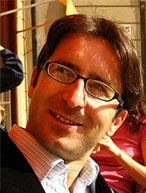Turkey, Islamic Politics and the ‘Turkish Model’
In more than three decades, ever since the Islamic-oriented National Order Party was formed in 1969, Turkish politics has been analysed by many in terms of two straitjacketed views: Islamists trying to capture power on the one hand, and on the other hand the secularists or the state elite, with the help of the military, struggling to keep the country’s political orientation towards the West to protect Turkey as a secular state. This image of Turkey has created some confusion among strategic analysts abroad in understanding Turkey and its policies.
- Published: September 2013















